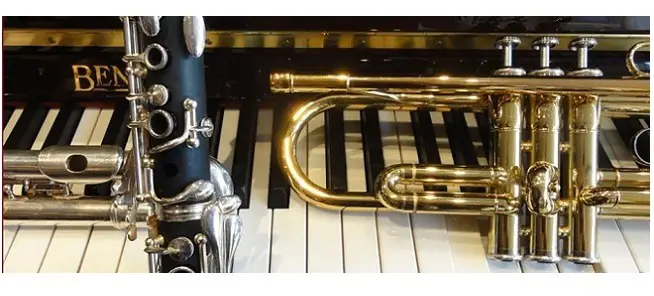
Participating in the School Band (or the Marching Band) plays an important role in Academic and Social Development.
Introduction
One of the great things about middle school is that students can finally participate in activities and sign up for subjects that they’ve been looking forward to since elementary school.
Joining the middle school band can be a milestone, but also a learning experience for tweens. Developing fine-motor skills, social skills, focus, working in a group, are just few of the things that they can expect to learn.
The school band / orchestra is where you get to create beautiful sounds made by the harmony, cooperation, and synchronization of several musical instruments played together.
So, be it a band or peppy marching band performances, make sure you experience it if you have the opportunity.
Related: Overview of Band & Orchestra Musical Instruments.
The Middle School Band – Tips for Teens and Parents
If your child is considering the school band or orchestra, consider the following tips to make the experience the best possible.
Give it a Try
Every student should at least look into joining the middle school band or orchestra.
Schools often hold a “band night” for parents and children to meet the instructor and try out the instruments, or you may have the opportunity to learn about the band program at school orientation.
In most schools when teachers recruit students for band and orchestra, they do it in person, and so the kids get to hear the instruments played, and they also get the opportunity to try the instruments themselves so they know which one is best for them.
Buying an Instrument
If your child decides to be part of the band, you may consider purchasing a used instrument from a student who has dropped out of band, or shop for used instruments to save costs (before buying an expensive instrument).
Be Patient
It takes time to learn to play an instrument so one needs to be patient with the band instructor and with other members of the band. Your child’s school will likely have a performance at the end of the year, so that you and your child can enjoy just how much the group has learned together.
KeytarHQ editorial team includes musicians who write and review products for pianists, keyboardists, guitarists & other musicians. KeytarHQ is the best online resource for information on keyboards, pianos, synths, keytars, guitars and music gear for musicians of all abilities, ages and interests.



Leave a Reply